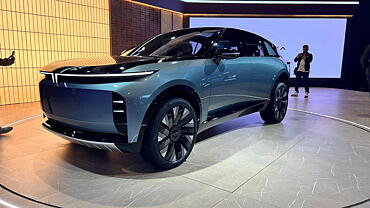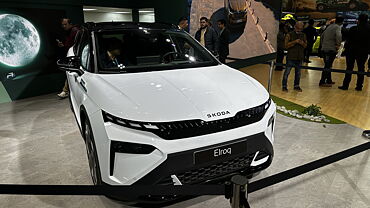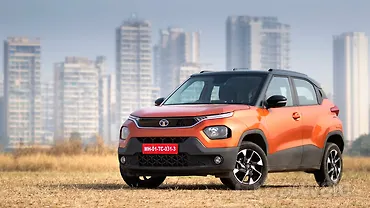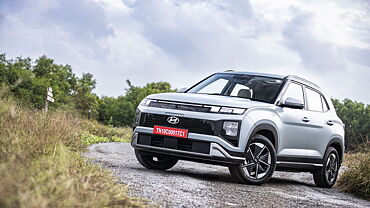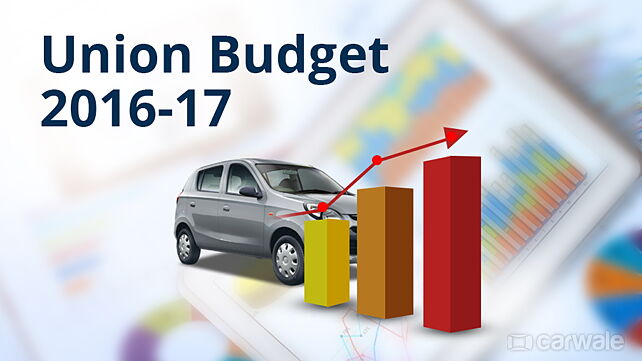
The 2016 Union Budget was read out in the parliament on March 1 by Finance minister Arun Jaitely. His declarations have brought about mixed reactions from various players in the market. While many have lauded the Centre for giving a major push towards the development of infrastructure, they have also expressed misgivings on the various taxes imposed on the purchase of vehicles. Here are some of the reactions from the various automakers present in India.
SIAM
The Society of Indian Automobile Manufacturers (SIAM) has expressed positive sentiments on the Rs 97,000 crore allocations in the road sector as well as on the re-initiation of 85 per cent of the projects that had been stalled for various reasons.
The amendment to be made in Motor Vehicles Act to open up the road transport sector in the passenger segment is a welcome move. However, introduction of Service Tax on passenger transport will have a dampening effect. The industry is happy to note that a grant of 200 crores have been made to the FAME scheme and NATRiP.

Tata Motors
Tata Motors has reacted to the budget by saying that it is particularly encouraged with the government opening up private participation to the public road transportation sector. While the passenger vehicle industry has been facing challenges over last few years, it has barely begun to show some signs of recovery. Additional cesses may disincentivise passenger vehicle customers, impacting the industry, said the automaker.

Audi
The budget presents a transformative agenda with clear-cut focus on initiatives for farmers, rural sector and infrastructure development. However, it negatively impacts the automobile industry. We are disappointed that the industry’s demand on reducing excise duty has not been addressed. On the contrary, 1 per cent infra cess on petrol, CNG, LPG cars, 2.5 per cent on small diesel cars and 4 per cent on bigger diesel cars and SUVs has been added which will further affect the price and consequently demand. Also, we need to evaluate the impact of extra tax levy of 1 per cent on purchase of cars above Rs 10 Lakh.

Nissan
“There is not much for Auto industry in this budget. Infrastructure cess increase up to 4% on passenger vehicles will definitely have an impact on the prices. We do not foresee that to be a major burden for small car buyers but the luxury cars and SUVs will feel the heat. We are still trying to understand the modalities of collection of TDS of 1 per cent on more than 10 lakh priced cars. Further, curbing incentives on in-house R&D spends from 200 per cent to 150 per cent is not very positive. There is no presentation on roadmap for GST implementation, additional Incentives for Electric Vehicles and Hybrids under FAME Scheme and the plan for Vehicle Scrappage scheme which is damper,” said Guillaume Sicard, President – Nissan India Operations.

Mahindra Automotive
Pawan Goenka, executive director, said “on the face of it, imposing up to 4 per cent Cess for Passenger vehicles is a concern for auto industry. However, one has to take it in stride, in view of all the priorities that we have for our economy and we in the industry have to manage it. It would have been good if some of the additional revenue from this cess was used to phase out older vehicles.”
There is no doubt that the additional cost is going to be a burden for the consumers. It has been spread out by the government though – the small petrol, LPG and CNG car buyers will hardly feel a pinch. A car worth Rs 5 lakh (ex-showroom) has become expensive by Rs 5,000.
The separate tax rate for the diesel cars, shows that government wants to discourage people from buying them. The same Rs 5 lakh diesel car will now cost Rs 12,500 more. It could be for various reasons, the most probable being the hue and cry over pollution from diesel cars.
Finally the taxes on the large cars and SUVs – 4 per cent hike in taxes is a lot. It means Rs 40,000 jump on a car worth Rs 10 lakh; furthermore since most of these cars are worth over Rs 10 lakh, even the 1 per cent luxury tax will come into picture, taking the price up by around Rs 50,000. It will be bad for people buy cars mainly in the Rs 10 lakh to Rs 20 lakh bracket, and the pinch would seem lesser on the more expensive cars.
On the plus side, it seems likely that the interest rates will fall with the new budget, which will automatically reduce loan rates and bring some relief to the buyers.
